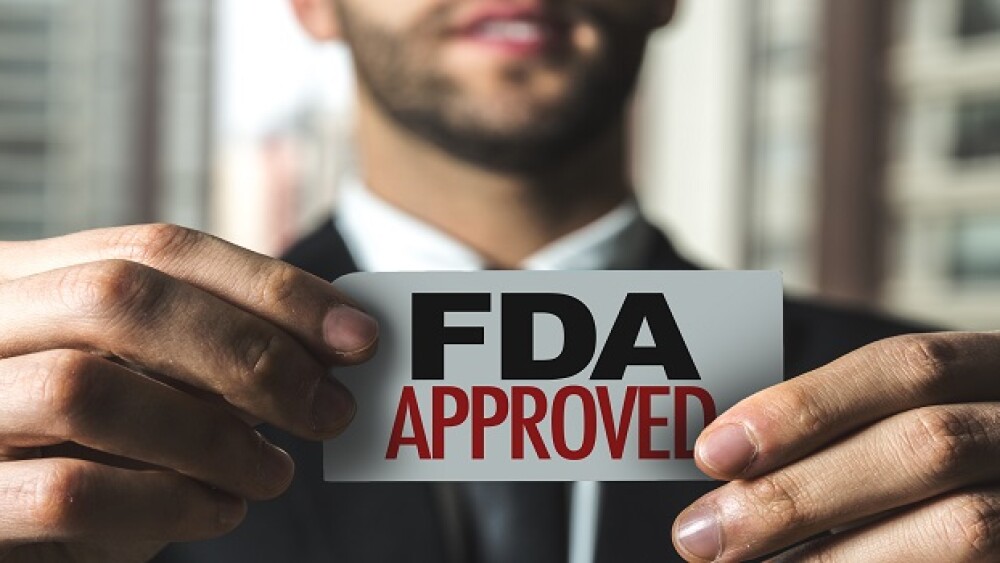The U.S. Food and Drug Administration (FDA) approved Pfizer’s Retacrit (epoetin alfa-epbx), a biosimilar to Amgen’s Epogen/Procrit (epoetin alfa). The drugs treat anemia caused by chronic kidney disease, chemotherapy, or use of zidovudine in HIV patients.
The U.S. Food and Drug Administration (FDA) approved Pfizer’s Retacrit (epoetin alfa-epbx), a biosimilar to Amgen’s Epogen/Procrit (epoetin alfa). The drugs treat anemia caused by chronic kidney disease, chemotherapy, or use of zidovudine in HIV patients. Retacrit has also been approved to cut the risk of red blood cell transfusions before or after surgery due to blood loss during surgery.
Biosimilars are like generic drugs, only for biological products. The key difference between a biosimilar and a generic is that a generic is an exact copycat of a branded drug. A biosimilar is “similar” to a biologic, which means it must undergo clinical trials and regulatory review like that of a new drug.
Pfizer’s Retracrit will be manufactured and marketed under Pfizer’s Hospira division. It has already been approved in the European Union.
Retacrit is the tenth biosimilar to be approved in the U.S. However, of the previous nine, only three are on the market because of barriers thrown up by the biopharma industry.
“It is important for patients to have access to safe, effective and affordable biological products and we are committed to facilitating the development and approval of biosimilar and interchangeable products,” Leah Christi, director of the Therapeutic Biologics and Biosimilars Staff in the FDA’s Center for Drug Evaluation and Research, said in a statement. “Biosimilars can provide greater access to treatment options for patients, increasing competition and potentially lowering costs.”
As with Epogen/Procrit, Retacrit requires it be dispensed with a patient Medication Guide providing information about its risk and usage. And like Epogen/Procrit, it will require a Boxed Warning to let health care professionals and patients know about the serious side effects of the drug, including increased risks of death, heart problems, stroke and tumor growth or recurrence. It also has additional warnings about high blood pressure, seizures, serious allergic reactions, severe skin reactions, and a condition where the bone marrow stops producing red blood cells resulting in anemia.
The Center for Biosimilars notes, “Today’s approval is a notable win for Pfizer, which received a Complete Response Letter (CRL) for the drug in 2017 on the basis of agency concerns about the company’s manufacturing plant, despite an earlier recommendation of approval from the Oncologic Drugs Advisory Committee. While Pfizer received an FDA warning letter concerning the plant, the company underscored the fact that the issues did not pertain specifically to the epoetin alfa product, and no additional clinical data were requested in the CRL.”
On April 23, Pfizer reported it had received a CRL from the FDA over its Biologics License Application (BLA) for its biosimilar to Genentech’s Herceptin (trastuzumab). The FDA called for more technical information, but it was not related to safety or clinical data.
The U.S. lags behind Europe in biosimilars, which began approving them in 2006. The U.S. only began approving biosimilars in 2015. A report by the IMS Institute, funded by Novartis, projected that without biosimilar competition, a total of $225 billion would be spent on eight top-selling biologics in the U.S. and five European countries, Germany, France, Italy, Spain and the UK, between 2016 and 2020. Those eight biologics are losing patent protection and the IMS calculated that the cumulative savings from biosimilar competition from 2015 to 2020 could range from $45 billion to $90 billion.
Christine Simmons, executive director of the Biosimilars Council, a division of the Association for Accessible Medicines, writing for STAT, said, “As of April 1 of this year, the FDA had 63 ‘programs’ or applications for biosimilar review, representing competition for 31 brand-name biologics (also known as a reference product). These biosimilars, if approved, will improve patient access to very expensive treatments for complex conditions at lower costs. Biosimilars provide competition to costly biologic medicine that are used by less than 2 percent of Americans but that account for more than 26 percent of drug spending.”





